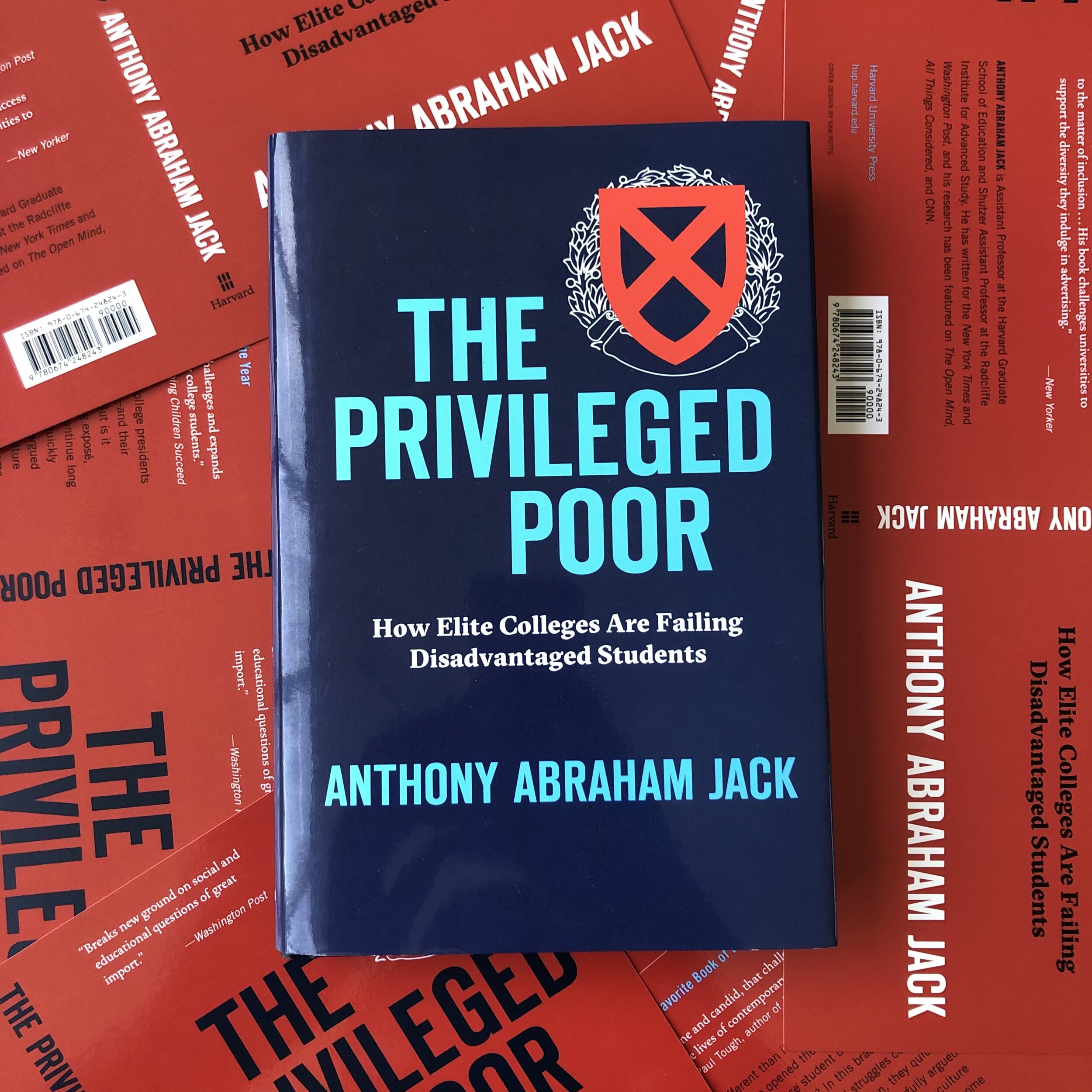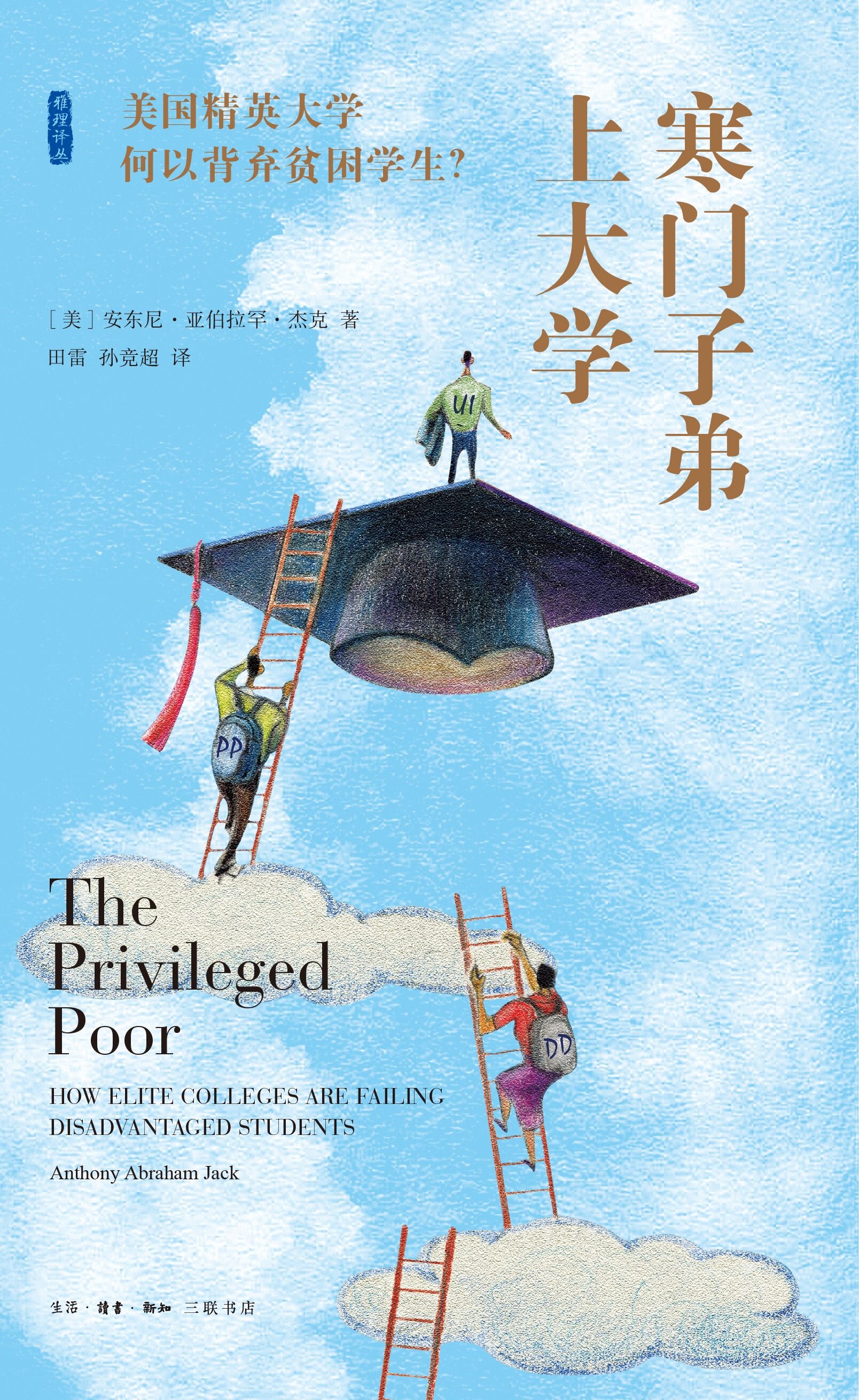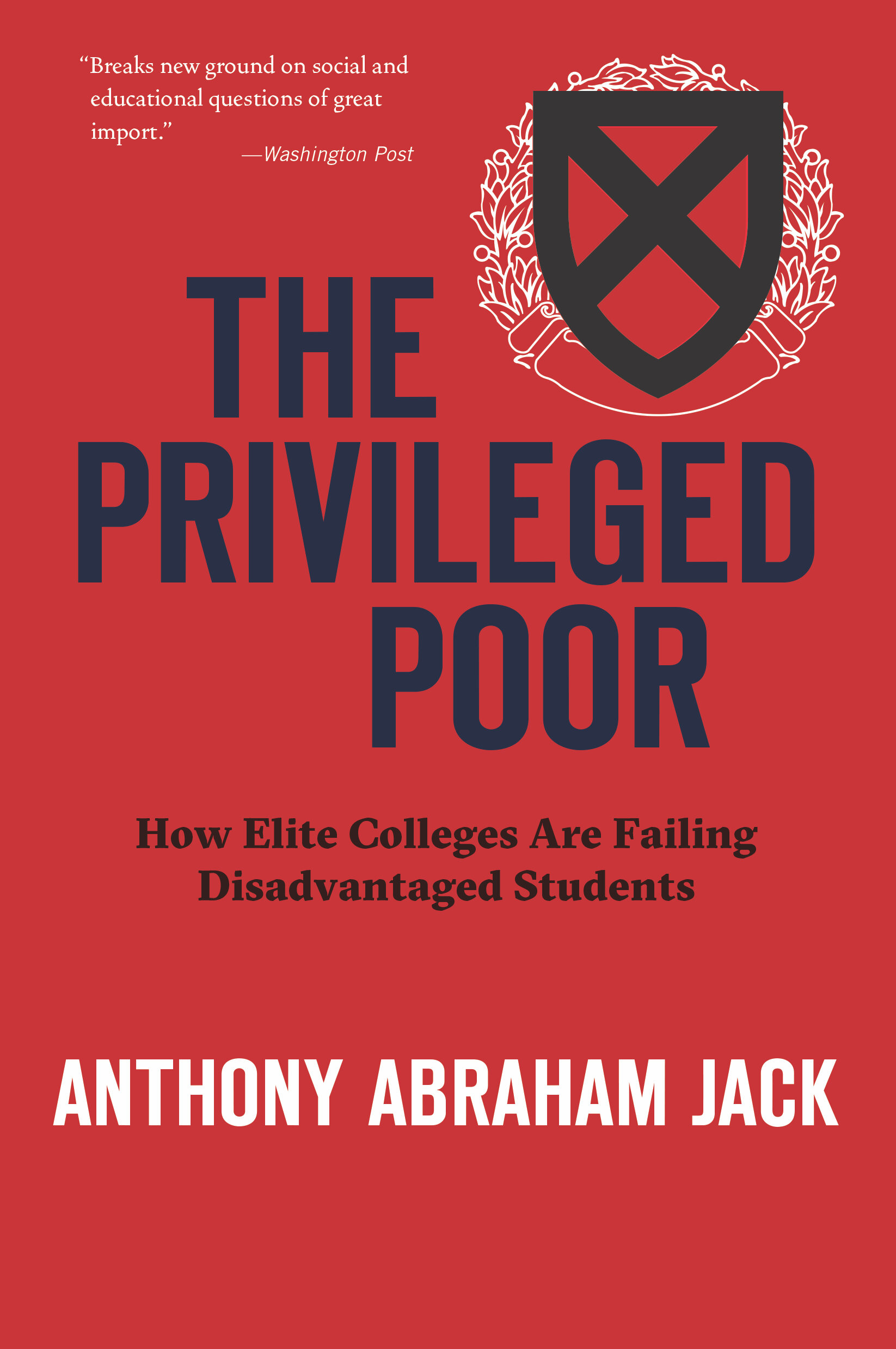
The Privileged Poor
What does it mean to be a poor student on a rich, college campus?
Winner of the 2020 Michael Harrington Award, Poverty, Class, and Inequality Division, Society for the Study of Social Problems
FInalist for the 2020 C. Wright Mills Award, Society for the Study of Social Problems
Winner of the 2020 Outstanding Book Award, Social Problems Theory Division, Society for the Study of Social Problems
Winner of the 2020 Mirra Komarovsky Book Award, Eastern Sociological Society
Honorable Mention for the 2020 Pierre Bourdieu Best Book Award, Section on Sociology of Education, American Sociological Association
Finalist for the 2020 PROSE Award, Education Practice, Association of American Publishers
Winner of the 2019 CEP Mildred Garcia Award for Exemplary Scholarship, Association for the Study of Higher Education
Winner of the 2019 Critics’ Choice Book Award, American Educational Studies Association
Named one of NPR Book’s Best Books of 2019
Winner of the 2018 Thomas J. Wilson Memorial Prize, Harvard University Press
Getting in is only half the battle. The Privileged Poor reveals how―and why―disadvantaged students struggle at elite colleges, and explains what these schools can do differently if these students are to thrive.
The Ivy League looks different than it used to. College presidents and deans of admission have opened their doors―and their coffers―to support a more diverse student body. But is it enough just to let them in? In The Privileged Poor, Anthony Jack reveals that the struggles of less privileged students continue long after they’ve arrived on campus. In their first weeks they quickly learn that admission does not mean acceptance. In this bracing and necessary book, Jack documents how university policies and cultures can exacerbate preexisting inequalities, and reveals why these policies hit some students harder than others.
Despite their lofty aspirations, top colleges hedge their bets by recruiting their new diversity largely from the same old sources, admitting scores of lower-income black, Latino, and white undergraduates from elite private high schools like Exeter and Andover. These students approach their new campuses very differently from students who attended local, and typically troubled, public high schools and are often left to flounder on their own. Drawing on interviews with dozens of undergraduates at one of America’s most famous colleges and on his own experiences as one of the privileged poor, Jack describes the lives poor students bring with them and shows how powerfully background affects their chances of success.
If we truly want our top colleges to be engines of opportunity, university policies and campus cultures will have to change. Jack provides concrete advice to help schools reduce these hidden disadvantages―advice we cannot afford to ignore.
Available Now


